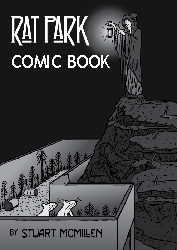Review of Globalization of Addiction by Michael Nenonen
Bruce Alexander's "The Globalization of Addiction" is probably the best book out there on the relationship between addiction and capitalism. Here's a review I wrote a while back:
Halloween
Michael Nenonen
October 13, 2008
The spirit of Halloween thrives even as the lifeblood drains from every other seasonal celebration. It's not just that these other holidays are being commercialized into oblivion, it's that they seem to be losing their very souls. Christmas images of holiness and serenity, for example, barely conceal the confused desperation that permeates our communities, our families, our innermost selves. How many people experience any kind of peace or connectedness on holidays like Christmas, Diwali, or Eid ul-Fitr, or feel any hint of spiritual regeneration on Easter, Ashura, or Passover? Rarely do these holidays allow us to escape or transcend the fragmentation and brutality of our daily lives, and so their power, their sanctity, falters and fades, leaving us stranded in the profanity of this ruined world. Halloween celebrations, meanwhile, grow larger and wilder with every passing year, while Halloween imagery becomes ever-darker, ever-more viciously surreal.
I'm not talking about children's trick-or-treating, or even the Samhain Sabbat celebrated by Wiccans and Neo-Pagans, but rather the Halloween the rest of us know, the Halloween decorated with fetish balls, horror movies, and torture porn, the Halloween that even the radical Christian Right celebrates with its sadistic Hell Houses and Revelation Walks. Here is a holiday that can still harrow the human heart. Though other holidays can barely budge the gates of light, Halloween can still open the doors to the underworld. What explains this discrepancy? Why does Halloween resonate so well with us, while other holidays barely resonate at all?
The iconography of Halloween is full of death, mutilation, and madness. A holiday like Halloween could have achieved such prominence only in a context of profound emotional anguish. In The Globalization of Addiction: A Study in Poverty of the Spirit (Oxford University Press, 2008), Simon Fraser University Professor Emeritus Bruce Alexander argues that while widespread anguish can accompany catastrophes in any society, free-market societies such as our own produce monstrous levels of emotional pain during even the very best of times.
Alexander writes that viable societies help people achieve psychosocial integration. He defines psychosocial integration as "a profound interdependence between individual and society that normally grows and develops throughout each person's lifespan. Psychosocial integration reconciles people's vital needs for social belonging with their equally vital needs for individual autonomy and achievement. Psychosocial integration is as much an inward experience of identity and meaning as a set of outward social relationships. An enduring lack of

